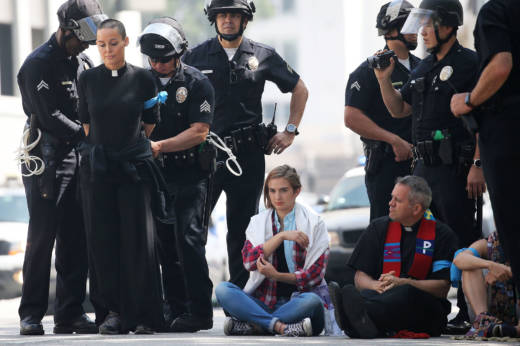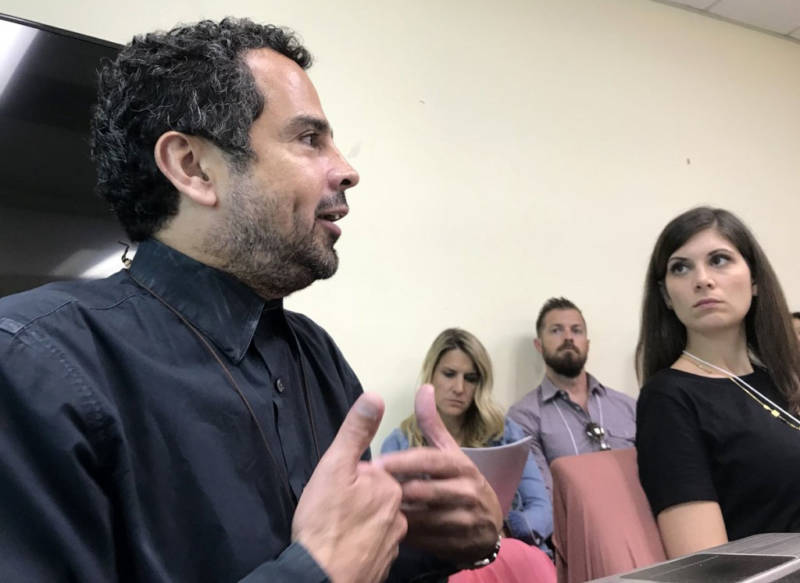The immigration crackdown by the Trump administration in Los Angeles has spawned no shortage of activists, local clergy included.
In their prayer shawls and collars, some faith leaders are among the most visible in demonstrations supporting immigrants, with a couple dozen getting arrested recently in downtown L.A. in a show of civil disobedience.
But for other Southern California clergy, the immigration debate can feel removed from their daily lives — like for some among the 30-plus pastors taking part in an immigration workshop earlier this week.
Guillermo Torres, a trainer with the interfaith group Clergy & Laity United for Economic Justice (CLUE), scanned a packed conference room in its downtown L.A. offices that included Presbyterians, Baptists and Lutherans — some from the city, some from suburbs with homogenous congregations that don’t have many immigrants in the pews.,
But Torres was determined to show all of them why they and their churches need to fight for immigrant rights.

